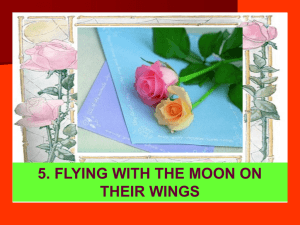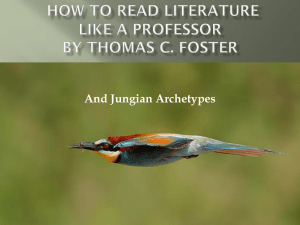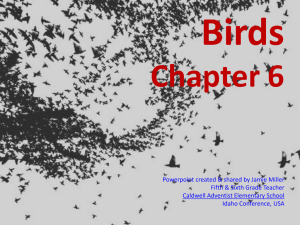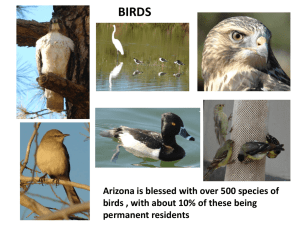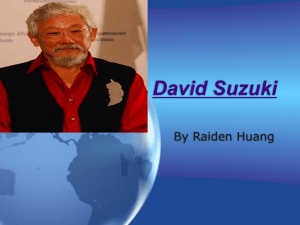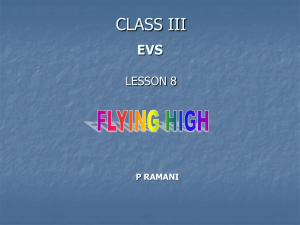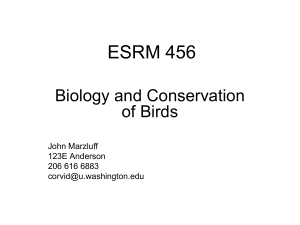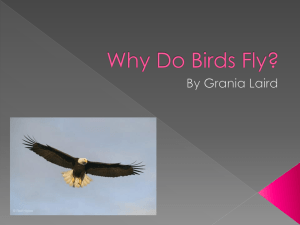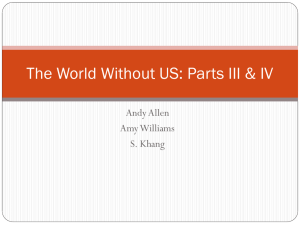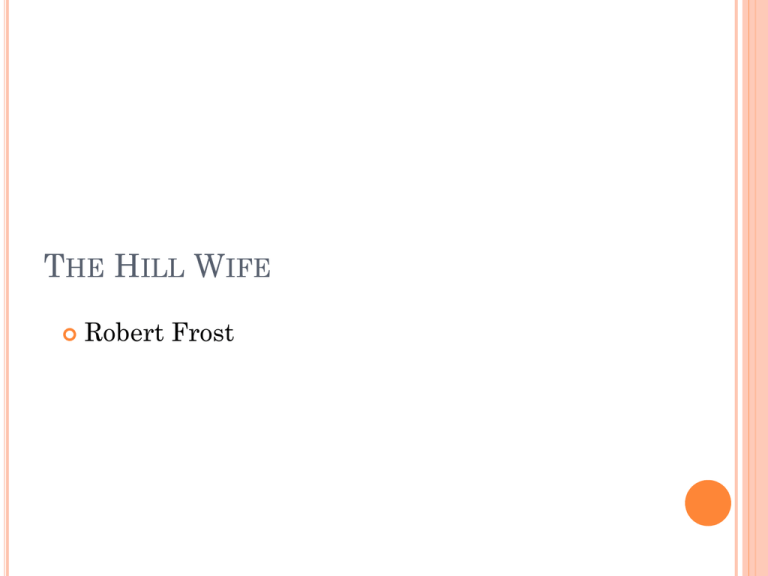
THE HILL WIFE
Robert Frost
CONTEXT
The poem was published in 1916.
Frost grew up in a rural area and was interested
in nature.
His work in known for having ‘menacing
undertones’
Wife narrating
The fact the stanzas
titled ‘her word’ makes
her seem feeble and
unworthy her place in
the poem
Make their
relationship seem
troubled and strained
‘others’ refers to the
birds that are still in
the house.
The word ‘driven’
suggests the birds
will and desire to
build their nests,
the wife's
emotions mirror
this however she
doesn’t have the
drive to compel
herself out of fear
of being alone –
irony is used here
as she suggests
that she is already
lonely yet cannot
do anything about
The regular rhyme scheme represents the wife’s
compression and the regularity and dullness of her
life. The enjambment is on going making the words
flow freely representing her desire to be free and
escape.
LONELINESS
Her Word
One ought not to have to care
So much as you and I
Care when the birds come round the
house
To seem to say good-bye
Or care so much when they come back
With whatever it is they sing;
The truth being we are as much
Too glad for one thing
As we are too sad for the others here –
With birds that fill their breasts
But with each other and themselves
And their built or driven nests
The reference s to
birds shows they
are envious of the
carefree life birds
have to come and
go as they please
Singing has
connotations
of happiness emphasising
freedom of the
birds life
The nest is a
metaphor for their
own home as it’s
only filled with
‘each other and
themselves’
suggests
loneliness.
The return home
as late as possible
– want to avoid
house! Because
they feel trapped
inside it, repetition
of ‘always’
emphasises their
ongoing struggle
and their
monotonous
feeling of their life.
Personification of
the house,
mirroring their
emotions.
HOUSE FEAR
Metaphor for their
relationship and
lifestyle.
Always – I tell you this they
learned—
Always at night when they return
To the lonely house from far away
They rattle the lock loudly
when entering the house so
that whatever's inside can
fly away - the birds.
To lamps unlighted and fire gone
gray
They learned to rattle the lock and
key
To give whatever might chance to
be
Warning and time to be off in
flight..
They leave the door open at night, so
And preferring the
that they don’t get engulfed by the
indoor night,
darkness/imprisoned by the house.
out – to the
They learned to leave the house
door wide
This ambiguous metaphor represents the
–darkness within them and their lives
which they’re trying to shut out, by
contrastingly opening the door.
Until they had lit the lamp inside.
Structure – the rhyming
scheme represents
mirroring (AABCBC) as if
she is analysing herself as
well as the stranger.
Punctuation is
ambiguous –
could show
doubt or
excitement.
Repetition of
perhaps show
uncertainty or
un-fulfillment.
Shows
jealousy of
people that
have freedom
and can move
forward with
their lives.
The Smile
Her Word
I didn’t like the way he went away.
That smile! It never came of being gay.
Still he smiled- did you see him? – I
was sure!
Perhaps because we gave him only
bread
And the wretch knew from that that
we were poor.
Perhaps because he let us give instead
Of season from us as he might have
seized.
Perhaps he mocked us for being wed,
Or being very young (and he was
pleased
To have a vision of us old and dead).
I wonder how far down the road he’s
got.
He’s watching from the woods as like
as not.
The stanza starts
with her being
lonely. The 2nd line
shows that the
stranger she is
talking about was
never truly happy –
never had meaning
behind his smile.
The
rhyming of
these two
words shows
the
connection
the wife
sees
between
them – it
shows the
realisation
of the future
of her
marriage.
Wife finds it
impossible to express
emotions through
words.
THE OFT-REPEATED DREAM
The ‘tireless’
hands is
ambiguous. Could
show abuse or
affection from
husband. They’re
also compared to
nature (the tree’s
and the birds).
The ‘hand’ of the
tree foreshadows
the possible
hanging of the
wife later in the
poem.
The wife
She had no saying dark enough
For the dark pine that kept
Forever trying the window-latch
Of the room where they slept.
The tireless but ineffectual hands
That with every futile pass
Made the great tree seem as a little
bird
Before the mystery of glass!
It never had been inside the room,
And only one of the two
Was afraid in an oft-repeated dream
Of what the tree might do.
Personification of the tree – again
foreshadowing her possible death.
These lines hint at
haunting/intruder
s trying to get in
to the house.
The ‘mystery’ of
glass – see the nature
outside – the trees,
birds and even the
possible stranger.
The window
represents a barrier
between her and the
freedom of the
outside – she’s close
enough to touch it
but she can’t.
Shows paranoia
Repetition of ‘too’
shows the wife
becoming
overwhelmed.
THE IMPULSE
It was too lonely for her there,
And too wild,
And since there were but two of them,
And no child,
These lines bare
connotations to
qualities of birds –
shows her
transformation in to
a bird (in to
freedom) – death.
And work was little in the house,
She was free,
And followed where he furrowed field,
Or felled tree.
She rested on a log and tossed
The fresh chips,
With a song only to herself
On her lips.
Shows
loneliness
Rhyme
emphasises that
the tree offers her
escape through
death.
The structure has
transformed to
long lines, in to
short and long
lines –
representing
transformation in
to freedom – no
long confined.
and once she went to break a bough
Of black alder
She strayed so far she scarcely heard.
Ambigouos – mental
breakdown – breakdown of
marriage – breakthrough of
freedom. Again has
connotations of birds.
When he called herAnd didn’t answer – didn’t speak –
Or return.
She stood, and then she ran and hid
In the fern.
Sympathy for the
husband?
He never found her, though he looked
Another
reference to
qualities of a
bird.
She hanged
herself? – her
transformation
to a bird is
complete. She
is free.
Everywhere,
And he asked at her mother’s house
Was she there.
Sudden and swift the light as that
The ties gave,
And he learned of finalities
Besides the grave.
The word besides
here can be ‘other
than’. There are
finalities other than
death (e.g. The end of
their relationship?).

